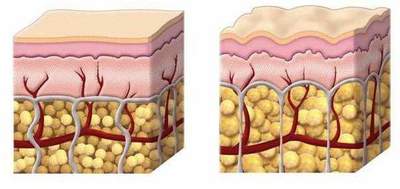Checklist: How to understand that you have increased estrogen

You go to bed at the same time get rid of the toxic environment, in control of their food - but I still feel ill at ease? The likelihood is high that you have elevated estrogen - a fairly common problem in today's girls. Check with our check-list to find out whether you ought to address to the endocrinologist for advice.
What is estrogen?
Estrogen - one of the key hormones that regulate the normal functioning of the female reproductive and genital systems. For proper operation of these systems, estrogen must be balanced with the hormone progesterone. The balance is easily disturbed - due to exposure to toxins, improper diet, use of medicines, lack of sleep and stress.
We have already talked about how hormones not only affect mood, but also to communicate between the different organs of our body. If some kind of hormone is not enough - the liver, kidneys or the brain can not get the right signals for optimal functioning.

Estrogen and progesterone - the two main female hormones. They both perform many roles and are equally important to maintain your healthy. Estrogen sends a message to the lining of the uterus that it was time to grow and thicken in preparation for pregnancy. It also affects sexual desire, sexual response, brain function and even bone density. In general, one hormone can affect the functioning of the thyroid gland, the hypothalamus, pituitary gland, skin and nervous system. Progesterone also instructs the endometrium to prepare for pregnancy. If fertilization does not occur, progesterone levels drop, signaling the beginning of the menstrual cycle. Progesterone also reduces cell growth, reduces anxiety, promotes sleep effect on bone growth and increases the activity of thyroid hormone - which is responsible for metabolism.
Increased estrogen is one of the most common hormonal imbalances faced by women. Sometimes this is due to an excess of estrogen, sometimes - with a lack of progesterone.
The main symptoms of increased estrogen
- Bright expressed premenstrual syndrome
- The increased anxiety and mood swings
- Fatigue
- Low sexual desire
- Losing weight control
- Excessive hair growth on the body of
- Endometriosis
- Varicose veins
- Swelling
- Heavy and irregular menses
- Reduced fertility or sterility
- Miscarriages
- uterine cancer or breast cancer
- Fibroids
What often causes an imbalance of estrogen:
Stress

Excessive or prolonged stress reduces the production of progesterone, producing more cortisol - the so-called stress hormone. This leads to the fact that estrogen progesterone begins to dominate, and this imbalance and leads to a majority of health problems.
Human liver One of the many functions of the liver is to remove excess hormones from the body. If the liver is not functioning properly and the weakened ability to fulfill this role is also impaired, leading to estrogen dominance.
Dysbacteriosis
The high presence of harmful bacteria leads to that beneficial bacteria in the intestine inhibit estrogen converted into water-soluble molecules. It makes estrogens to go back into the bloodstream, where the hormone again exerts its effect on overall health.
Excessive use of alcohol or drugs
Regular use of harmful substances contained in alcohol, tobacco and drugs affect the overall functioning of the liver, complicating the already difficult task of processing toxins. If you watch at least some symptoms of increased estrogen - is to understand whether you have a problem with drinking.
Nutritional deficiencies
This factor may be overlooked, but it is quite common in those who rarely sees the sunlight, and should not, as a lot of useful substances contained in its diet. In late spring, particularly endocrinologists recommend to switch to plant-based diet, which does not imply the rejection of meat and increase the daily intake of essential vitamins and antioxidants.
Do you notice at elevated estrogen symptoms?













































